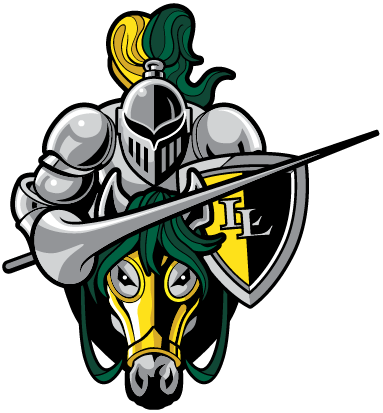Welcome to 7th Grade
Language and Literature
In 7th grade Language and Literature, students build upon the foundation established in 6th grade by developing new skills for deeper literary analysis, conducting more extensive research, and using strategies to enhance their understanding of nonfiction texts. They also examine the concepts of theme and central idea in literature, exploring how authors develop themes and central ideas across various narratives and texts. Using mentor texts, 7th graders study the author's craft and learn to develop their own voices as writers.
The year begins with a whole-class novel study of A Long Walk to Water, which provides insight into the Second Sudanese Civil War. We then end the first semester by analyzing a selection of short stories. In the second semester, students transition to nonfiction through a research unit on the adolescent brain, applying their growing analytical skills. They later conduct an independent research project on a topic of their choice, answering provided essential research questions and creating an infographic to demonstrate their understanding. Throughout the year, students also participate in regular reading and writing conferences with their teacher to set goals and track progress in both areas.
Math
At Lincoln, our Lancers benefit from teachers who tailor instruction to meet the needs of every student. Math placement is based on individual learning needs, ensuring that students receive appropriate support and challenge. Teachers use the Big Ideas Math curriculum as a key resource when developing their MYP units. The Big Ideas Math website is also an excellent tool for parents and guardians to explore and support their child’s learning.
Math 7
Students learn about 7th grade common core standards. The units below may differ in order, depending on the scope and sequence of the team of 7th grade teachers.
- Integers
- Rational Numbers
- Expressions
- Equations
- Inequalities
- Ratios and Proportions
- Percents
- Constructions and Scale Drawings
- Circles and Area
- Surface Area and Volume
- Statistics and Probability
Math 7/8
This course is a continuation of Math 6/7. Students continue to learn about the 7th grade math standards, as well as the first half of the 8th grade common core standards. These students are accelerated and can excel in a fast-paced course due to the workload. Students may also be placed in a support math class, Achieve Math, to support the demands of the accelerated class.
- Equations and Inequalities
- Rates and Proportional Relationships
- Percents
- Constructions and Scale Drawings
- Circles, Area, Surface Area, and Volume
- Statistics and Probability
- Transformations
- Angles and Triangles
- Linear Equations
- The Real Numbers System
- Volume and Similar Solids
- Exponents
- Scientific Notation and The Pythagorean Theorem
Middle School Algebra 1
Students learn the second half of the 8th grade common core standards and all the High School Algebra 1 common core standards. These students have completed Math 7/8 (see above) and have a teacher recommendation for this course. Successful completion of this course will earn students 10 high school math credits on their high school transcript. Topics covered in MS Algebra 1 include:
- Pythagorean Theorem
- Linear: Functions, Equations, and Systems
- Linear: Inequalities and Systems
- Exponential Equations and Functions
- Polynomial Equations and Factoring
- Quadratic: Functions, Equations, and Systems
- Data Analysis and Displays
- Square Root Functions (if time allows)
- Rational Equations and Functions (if time allows)
Science
7th grade science is an exploration of the life sciences — ecology, biology, evolution, and genetics — grounded in the Amplify Science curriculum. Through hands-on investigations, interactive simulations, and collaborative discussions, students act as scientists to figure out real-world phenomena. Using the Amplify Life Science units, students engage with core ideas such as Metabolism, Body Systems, Natural Selection, Microbiomes, and Traits and Reproduction. They’ll gather and interpret data, construct scientific explanations, and communicate their reasoning — just like real scientists.
At Lincoln, we believe the best way to learn science is by doing science, so get ready to roll up your sleeves, ask big questions, and experience the living world in action.
Individuals and Society
At Lincoln, Individuals and Societies (also known as Social Studies) is divided into three courses, one at each grade level. 7th grade is Eastern Hemisphere World Geography. This course is taught using the Colorado Academic Standards for Social Studies and assessed using the Middle Years Program, MYP Assessment Criteria. As stated on the International Baccalaureate website, Individuals and Societies “…encourages learners to respect and understand the world around them and equips them with the necessary skills to inquire into historical, contemporary, geographical, political, social, economic, religious, and cultural factors that have an impact on individuals and societies.”



